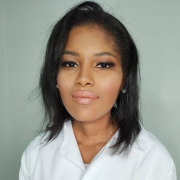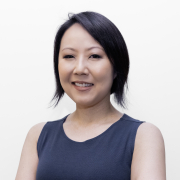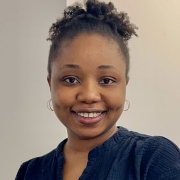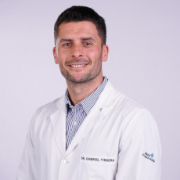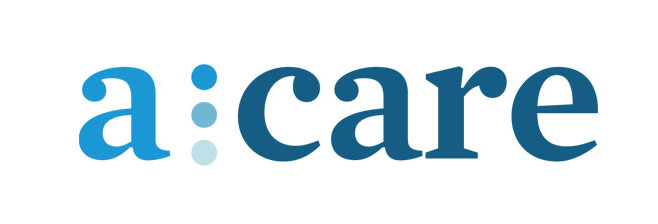How did you become interested in research relating to Hypertension?
Everything started when I was still a kid and my mother was diagnosed with hypertension. I was intrigued with the fact that she needed to take so many pills in order to be healthy and have her blood pressure levels controlled. After that, my interest intensified when I, as an undergrad student, joined the hypertension group in the pharmacology department at the University of Sao Paulo.
Describe your research & the program/lab (info of your supervisor) that you are in?
I recently joined the Institute of Cardiovascular and Medical Sciences at the University of Glasgow, and continue to be part of Prof Rhian Touyz’s research group. Here in Glasgow I was very lucky to receive a competitive prestigious fellowship, called the MVLS Leadership Fellowship, which provided seed funding for me to generate preliminary data for an application to national funding agencies. This has been a wonderful opportunity for me to start developing my own independent research career. My research focuses on vascular calcification and more specifically on osteogenic factors and their relationship with vascular injury during hypertension. I am also interested in the molecular mechanisms of oxidative stress, and Noxs in the development of high blood pressure.
What do you consider to be your substantial scientific contribution so far (provide Pubmed PMID if possible)?
I would say that my substantial scientific contribution is a study that started my whole interest in vascular calcification. In this study, ‘Vascular smooth muscle cell differentiation to an osteogenic phenotype involves TRPM7 modulation by magnesium. Hypertension. 56(3):453-62, 2010’, we were able to demonstrate novel mechanisms of vascular calcification and an important protective effect of magnesium. It is a very special paper because it not only opened a whole new world of vascular biology to me but it has clinical significance, something that I appreciated when I had the unique experience of doing a clinical rotation during my post doc. In particular, when I was at the Kidney Research Centre at the Ottawa Hospital Research Institute, under the supervision of Drs Burns and Touyz, I was given an opportunity to do a clinical rotation observership where I came into direct contact with patients. Of the many patients I followed with the clinicians was one with severe vascular calcification and chronic kidney disease, which made my basic research seem so much more meaningful. I am now pursuing the field and here in Glasgow I have great opportunities to do excellent translational research in vascular calcification and cardiovascular disease.
What is your favourite manuscript from a lab other than your own (provide Pubmed PMID if possible)?
One of my top papers at the moment is “Fetuin-A acts as an endogenous ligand of TLR4 to promote lipid-induced insulin resistance” by Pal D. and colleagues (Nat Med. 2012). I like it because demonstrates that the osteogenic factors have pleitropic effects beyond regulation of the calcification process.
What facilities are essential for your research?
As I am interested in ROS biology, all the equipment necessary for their measurement is essential to my research. I would also say that cell culture, myographs and western blot apparatus are also important to my work. But more than that, I believe that is extremely important for me and young researchers to have a multidisciplinary approach to research, and so more and more facilities and equipment will be added to my list – however I recognise that it is no use having the machines available if I cannot use them, so there is always a steep learning curve to ensure I am kept at the forefront in technologies and assays.
Where do your research strengths lie? Why? What are your research weaknesses? How will you improve?
I believe my strength is my capacity to think “outside the box” and to be able to work on different projects simultaneously. I am also a ‘people person’ and enjoy interacting and collaborating with many people, from different backgrounds and at different stages of their scientific training/career. This has helped me a lot in tackling many obstacles during my training and offered me the opportunity to publish more, allowed me to develop my scientific and critical thought processes and helped me to deal with experimental frustrations. I learned a lot from it. My weaknesses are the fact that I always feel that I should do more in every project and as a non English speaker, I am always trying to improve my writing and presentation skills. In terms of how to improve, I guess the only way is practice more and more, there is always room for improvement in any aspect of one’s professional life. I think that you should never get too comfortable and never be complacent. From a technical viewpoint, I would love to know much more about microscopy, imaging and related techniques.
Describe your unforgettable (proudest) moment in science, and the most challenging situation that you have had to overcome (lessons learnt) so far?
My unforgettable moment was when a student that I was supervising won her first presentation award. It felt so good to see her big smile and feel that she was rewarded for her hard work. An image of the many discussions about her data and the training for that presentation came to my mind at that moment. It was such a good feeling. I consider myself lucky and I have had a very nurturing and exciting training and very supportive mentors that helped me a lot. The feeling that you are able to pay it forward is priceless. The most challenging one is now, where I am in the transition of being a post-doc to being an independent researcher. It is way harder than I thought and really demanding and challenging, but as I always say, it is also a lot of fun.
At which conference did you first present? How was your experience?
I would think of my first oral presentation. It was at the Council for High Blood Pressure Research Conference. I was extremely nervous and I practiced so much with my supervisor and friends. I am really thankful to my friends, they spent almost the whole night helping me to calm down and get in the best shape I could possibly be at that point. The experience was great; I just wished I was better in answering the questions after my talk. I understood all of the questions but my nerves came into play and I felt bad after everything. But as I said, practice makes it better and now I like to think that will stay in the past and that my presentation skills have improved.
What upcoming conferences will you be attending, and what is the furthest distance that you have traveled for a conference?
The furthest distance I travelled was when I went to the Inter-American Society of Hypertension meeting in Brazil, even though is where I come from. I left from Canada to Brazil. My next conference will be the 2013 Council for High Blood Pressure Research Annual Meeting this September in New Orleans. I am so excited for it and for the ISH/NIN symposium as well.
How did you learn about ISH/NIN and its activities?
I learned about it right at the beginning of its creation. A friend and colleague is part the committee and was always promoting it to us and other people in the Institute. I find this initiative very important to all of us as it facilitates networking, friendships and great opportunities across the world. Many thanks to all of the members of the ISH/NIN for the amazing job you guys are doing; I am sure it is appreciated by many young scientists.
What area(s) do you wish to specialize in the future?
I wish to expand my knowledge more towards new molecular approaches, polyomics and systems biology strategies in vascular biology and cardiovascular research.
Who is your role model in Science? Why?
My role model in science is my former supervisor and current mentor Prof. Rhian Touyz. If you know her, you know my reasons for that. But if you do not know her, she is a brilliant scientist, extremely talented and the best boss a person could wish for. I have learned so much from her and she has always given me and others so many opportunities for career development. She is not only my role model, but also an inspiration as she always inspires one to give the best of themselves.
What are your scientific goals? Advise for talented emerging scientists?
My goal now is to become an independent researcher, get my first grant and start my own laboratory. My advices is keep your mind open, think “outside the box” and learn that you are not alone and there are many people out there that can help you and your career. So get out there and have fun with it!!!
